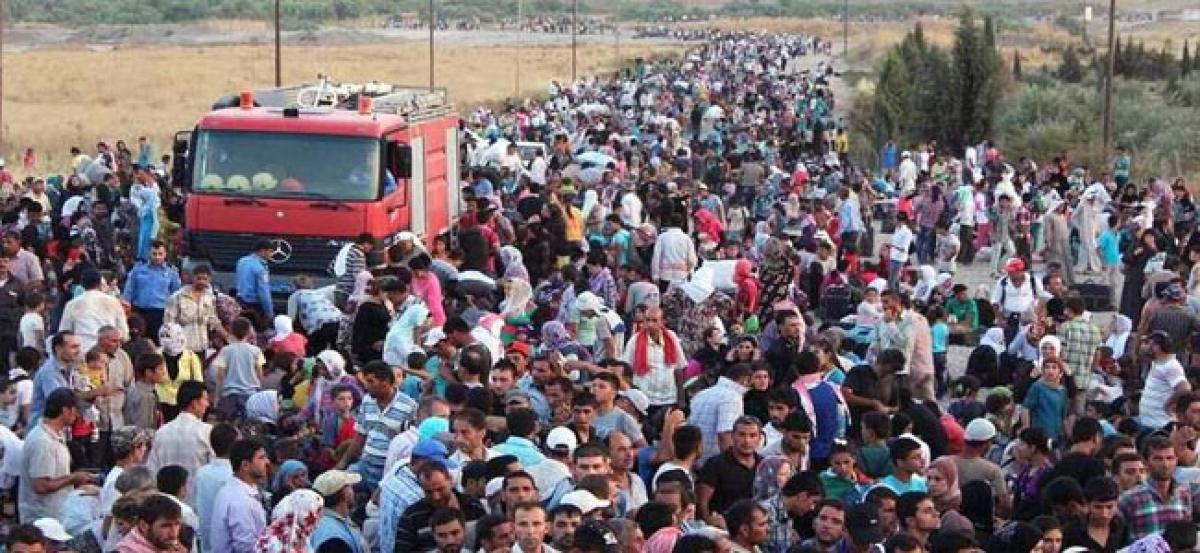Live
- Rajasthan registers 22.51 pc voting in 12 LS seats
- Ramanavami celebrated with stunning classical dance
- UP govt prepares question banks for students
- Educating youth about importance of maintaining a healthy liver
- Nine candidates enter the poll fray on first day
- IIT-K, BFI forge partnership to accelerate healthcare innovation
- Nurture self-confidence and growth
- Nominations filed for Kurnool & Nandyal constituencies
- YSRCP’s ‘poor’ candidate owns assets of Rs 161 crore
- 12 nominations filed on Day-1
Just In

The Rohingya people are a Muslim minority group residing in the Rakhine state, formerly known as Arakan. The Rohingya people are considered “stateless entities”, as the Myanmar government has been refusing to recognise them as one of the ethnic groups of the country. For this reason, the Rohingya people lack legal protection from the Government of Myanmar
The Rohingya people are a Muslim minority group residing in the Rakhine state, formerly known as Arakan. The Rohingya people are considered “stateless entities”, as the Myanmar government has been refusing to recognise them as one of the ethnic groups of the country. For this reason, the Rohingya people lack legal protection from the Government of Myanmar,
are regarded as mere refugees from Bangladesh, and face strong hostility in the country—often described as one of the most persecuted people on earth. To escape the dire situation in Myanmar, the Rohingya try to illegally enter Southeast Asian states, begging for humanitarian support from potential host countries.
The Rohingya are a minority ethnic group located in Myanmar’s western Rakhine state and are considered to be a variation of the Sunni religion. Since the Rohingya are considered to be illegal Bengali immigrants and were denied recognition as a religion by the government of Myanmar, the dominant group, the Rakhine, rejects the label “Rohingya” and have started to persecute the Rohingya.
The 1982 Citizenship Law denies the Rohingya Muslims citizenship despite the people living there for generations. The Rohingya are fleeing Myanmar because of the restrictions and policies placed by the government. The restrictions include: “marriage, family planning, employment, education, religious choice, and freedom of movement” and they are facing discrimination because of their ethnic heritage (Albert).
With most of the families living below the poverty line, tensions between the Rohingya and the other religious groups have exploded into conflict. The violence and turmoil began in 2012, the first incident was when a group of Rohingya men were accused of raping and killing a Buddhist woman (Albert). The Buddhist nationalists retaliated by killing and burning the Rohingya homes. People from all over the world started calling this crisis and bloodshed “campaign of ethnic cleansing.
” For years the Rohingyas have faced discrimination and persecution, today they are still facing this problem and have started to flee to other countries for safe haven. In 2015 “more than 40 Rohingya were massacred in the village of Du Chee Yar Tan by local men, the UN confirmed.” (Westcott 1). The Rohingya people have been facing persecution for their religion and as of today still have no rights or citizenship in their homeland.

© 2024 Hyderabad Media House Limited/The Hans India. All rights reserved. Powered by hocalwire.com







